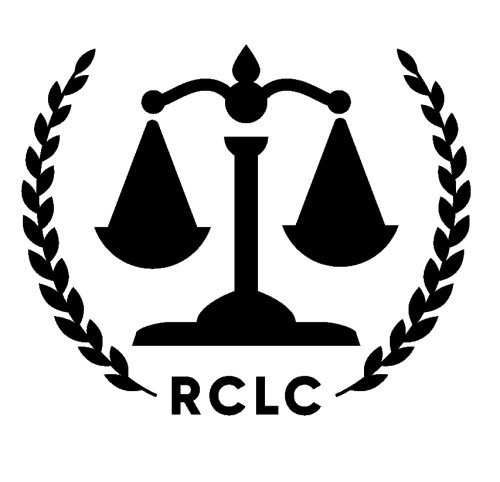Best Nonprofit & Charitable Organizations Lawyers in Harare
Share your needs with us, get contacted by law firms.
Free. Takes 2 min.
List of the best lawyers in Harare, Zimbabwe
About Nonprofit & Charitable Organizations Law in Harare, Zimbabwe
Nonprofit and charitable organizations in Harare, Zimbabwe, play a crucial role in addressing social, economic, and environmental issues. These entities are formed to serve the public good without the intention of generating profits for owners or stakeholders. As such, the legal framework governing these organizations is designed to ensure accountability, transparency, and compliance with both national and local regulations. In Harare, nonprofit organizations can take various forms, including trusts, societies, and associations, each with its own specific legal requirements.
Why You May Need a Lawyer
Engaging a lawyer proficient in nonprofit and charitable organization law can be indispensable for several reasons. Common situations include:
- Setting up a new nonprofit entity and ensuring it complies with legal requirements.
- Navigating tax-exempt status and compliance with tax obligations.
- Drafting and reviewing contracts, including funding agreements and partnership deals.
- Advising on governance structures and compliance with legal mandates.
- Addressing disputes within the organization or with external parties.
- Guidance on fundraising regulations and donor compliance.
- Adapting to changes in local laws and ordinances affecting nonprofit activities.
- Assistance with registration, licensing, and reporting obligations.
Local Laws Overview
The legal landscape for nonprofit and charitable organizations in Harare, Zimbabwe, is primarily governed by the Private Voluntary Organizations Act, the Trusts and Trustees’ Act, and various tax regulations. Key aspects include:
- Registration: Nonprofit entities must register with relevant authorities, which differ based on the type of organization.
- Governance: Organizations must adhere to governance structures specified by law, including maintaining a board and conducting regular meetings.
- Taxation: Although some nonprofits may qualify for tax exemptions, they must still comply with reporting and other statutory requirements.
- Reporting: Regular financial and activity reporting is mandatory to maintain transparency and accountability.
- Audit: Larger organizations may be required to undergo annual audits to ensure financial transparency.
- Compliance: All nonprofit activities must comply with national legal standards, and any international operations must consider additional regulations.
Frequently Asked Questions
1. Do all nonprofit organizations need to register in Zimbabwe?
Yes, all nonprofit organizations must register with the appropriate authorities. The specific process depends on the type of organization being formed.
2. What are the different types of nonprofit organizations I can establish?
In Zimbabwe, common types include trusts, societies, and associations, each governed by different legal statutes. It is essential to understand the distinctions when forming an organization.
3. Are nonprofits automatically tax-exempt?
No, not all nonprofits automatically qualify for tax-exempt status. Organizations may need to apply separately for tax exemptions and comply with all relevant tax regulations.
4. How do I maintain compliance with local laws?
Compliance involves regular reporting, financial transparency, adhering to governance requirements, and keeping up with changes in legislation. Legal counsel can provide guidance.
5. Can a nonprofit engage in fundraising activities?
Yes, nonprofit organizations can engage in fundraising, but they must ensure they meet legal requirements and donor compliance obligations to avoid penalties.
6. What happens if a nonprofit fails to comply with legal requirements?
Failure to comply can result in penalties, loss of tax-exempt status, or even dissolution of the organization. Legal assistance might be necessary to rectify such situations.
7. Are there restrictions on international activities of nonprofits?
Yes, international activities may draw additional scrutiny and require adherence to both local and international legal standards.
8. How often are audits required for nonprofits?
While small organizations might not be required to undergo annual audits, larger ones are generally mandated to do so to ensure financial integrity.
9. Can a nonprofit be involved in political activities?
Nonprofits may have restrictions on political activities, especially if they wish to retain their tax-exempt status. It's crucial to seek legal advice to navigate this area.
10. What should I do if there is a dispute within my nonprofit?
Dispute resolution might require mediation, arbitration, or legal proceedings. Obtaining legal guidance can help resolve conflicts effectively.
Additional Resources
For further assistance, consider reaching out to:
- The Ministry of Public Service, Labour and Social Welfare: Oversees nonprofit registration and compliance.
- The Zimbabwe Revenue Authority (ZIMRA): Provides information on tax obligations and exemptions for nonprofits.
- The Law Society of Zimbabwe: Offers resources for finding legal professionals experienced in nonprofit law.
- Zimbabwe Nonprofit Organizations Forum: A network providing advocacy and support for the nonprofit sector.
Next Steps
If you need legal assistance in the nonprofit sector, consider taking the following steps:
- Identify specific legal needs related to your nonprofit organization.
- Research and select a qualified attorney experienced in nonprofit and charitable law.
- Prepare any relevant documents or information critical to your legal needs.
- Schedule a consultation to discuss your situation and receive tailored legal advice.
- Follow through with recommended legal actions to ensure compliance and resolve any issues effectively.
Lawzana helps you find the best lawyers and law firms in Harare through a curated and pre-screened list of qualified legal professionals. Our platform offers rankings and detailed profiles of attorneys and law firms, allowing you to compare based on practice areas, including Nonprofit & Charitable Organizations, experience, and client feedback.
Each profile includes a description of the firm's areas of practice, client reviews, team members and partners, year of establishment, spoken languages, office locations, contact information, social media presence, and any published articles or resources. Most firms on our platform speak English and are experienced in both local and international legal matters.
Get a quote from top-rated law firms in Harare, Zimbabwe — quickly, securely, and without unnecessary hassle.
Disclaimer:
The information provided on this page is for general informational purposes only and does not constitute legal advice. While we strive to ensure the accuracy and relevance of the content, legal information may change over time, and interpretations of the law can vary. You should always consult with a qualified legal professional for advice specific to your situation.
We disclaim all liability for actions taken or not taken based on the content of this page. If you believe any information is incorrect or outdated, please contact us, and we will review and update it where appropriate.
















